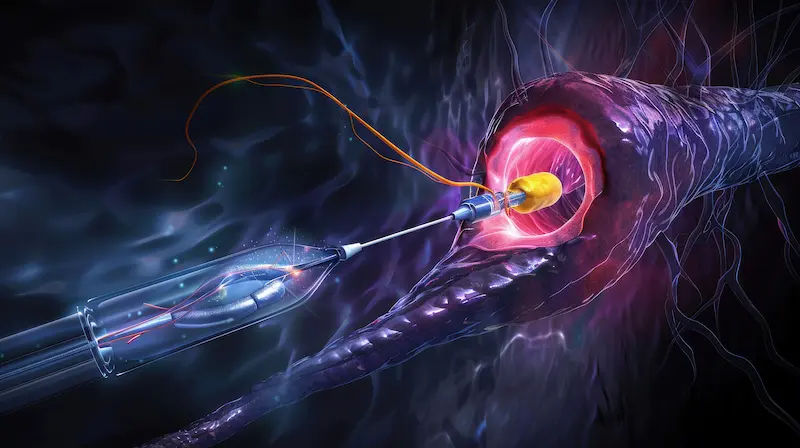- male
- 28 Years
- 20/02/2025
I'm really worried about my brother Jiten, who was in the cardiac care unit recently. He's just 28 and now that he's home, his blood pressure keeps dropping in the evening, and he starts vomiting. After that, his skin turns pale and he experiences pain in his right calf. I'm also noticing that he's coughing a bit. The hospital stay was stable after his procedure with the AICD implant, but I'm worried about these symptoms popping up. His meds include things like concor, aldactone, and levoflox among others. Could you advise on what might help him recover better and keep these symptoms in check?
Answered by 1 Apollo Doctors
To address the symptoms of low blood pressure, vomiting, pale skin, calf pain, and cough, the following adjustments can be made to the medication regimen: 1. Low Blood Pressure and Vomiting: Given the symptoms of low blood pressure and vomiting, it is important to review the medications that may be contributing to these side effects. In this case, Dytor 10mg (Torsemide) is a diuretic that can lower blood pressure and cause electrolyte imbalances leading to vomiting. It may be advisable to reduce the dosage of Dytor or consider an alternative diuretic. 2. Pale Skin and Calf Pain: The symptoms of pale skin and calf pain could be indicative of poor blood circulation. To address this, it is important to ensure adequate hydration and blood flow. Aldactone 25mg (Spironolactone) can sometimes cause electrolyte imbalances leading to symptoms like calf pain. Monitoring electrolyte levels and adjusting the dosage of Aldactone may be beneficial. 3. Cough: If the cough persists, it may be related to heart failure or respiratory issues. Dapaone 10mg (Dapagliflozin) is a medication used to treat heart failure. However, if the cough is persistent and bothersome, a review of the medication regimen and potential respiratory evaluation may be necessary. 4. Overall Recommendation: Considering the symptoms described, it may be beneficial to consult with the healthcare provider who prescribed the medications. Adjustments in medication dosages or alternative medications may be necessary to address the symptoms of low blood pressure, vomiting, pale skin, calf pain, and cough effectively. Please note that any changes to the medication regimen should be done under the supervision and guidance of a healthcare professional. Regular monitoring and follow-up with the healthcare provider are essential for optimal management of these symptoms.
Dr. Dr Khaleel Suggests...
Consult a Cardiologist
Answered 25/07/2025
0
0

More Cardiology Health Queries
View allI'm really puzzled and a bit worried about what's been going on with me lately. Every time I try to catch some sleep, I get woken up by this chest pain and a rapid heartbeat. It's been happening for over a month now. Climbing stairs also brings on this uncomfortable chest feeling. I'm around 100 kg and on met XL and telmisartan for blood pressure. I had a Stress Echocardiogram and CT angiogram recently, and both came back normal. I also attached my last two ECGs for a reference. I've been reassured that this isn't cardiac pain, but it genuinely feels like angina to me. So I'm kind of confused and not sure whats going on. Could this still be related to my heart in some way, or maybe it's something else entirely?
It's good that your recent tests have come back normal, ruling out any cardiac issues. The symptoms you are experiencing could be due to acid reflux or GERD. I recommend trying over-the-counter medication like Omeprazole 20mg once daily before breakfast for 2 weeks. Additionally, you can try raising the head of your bed and avoiding heavy meals close to bedtime. If the symptoms persist, you may need to follow up with a gastroenterologist for further evaluation.
Answered by 1 Apollo Doctors
I'm feeling like there's an earthquake happening inside me all day long and I've got this little chest pain that's worrying me. I went to a cardiologist a few days back, and they did an ECG and an echo, both of which turned out normal. They prescribed some anxiety meds for the night, but they haven't helped at all and I'm still feeling the same. I'm really anxious about whether this could cause any serious heart issues in the long run. Do you have any advice or solutions that could help me out?
It sounds like you may be experiencing palpitations along with chest pain. Since your ECG and echo were normal, it is less likely to be related to a serious heart problem. However, persistent symptoms should be further evaluated. I recommend trying a beta-blocker medication such as Metoprolol (25-50mg) once daily to help with the palpitations and chest pain. Additionally, practicing relaxation techniques such as deep breathing exercises or meditation may also help alleviate your symptoms. If the symptoms persist, it would be best to follow up with your cardiologist for further evaluation and management.
Answered by 1 Apollo Doctors
I've woken up today with this weird numb feeling on the top left part of my chest right above my breast. It feels tingly when I touch it, but there's no pain. Also, I'm sweating on and off and my mid back is aching. Could this be something serious?
an ecg is advised.
Answered by 1 Apollo Doctors
Disclaimer: Answers on Apollo 247 are not intended to replace your doctor advice. Always seek help of a professional doctor in case of an medical emergency or ailment.



